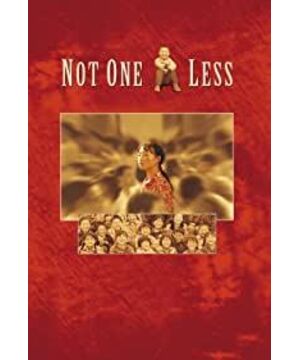Looking at it from another year's perspective, assuming that Zhang Huike has not been found back, he will most likely continue to work in the city, and eventually adapt to life in the city. Instead, his standard of living will be better than in the countryside. The survival skills learned may not be less than those learned in school. After he got it back, he might not be serious about studying, not to mention that from the teaching level at the time, he probably didn't learn much. It is very likely that he will end up as an ordinary farmer, so the purpose of this movie should be true. The reaction is a fragment of a corner of society. As for what thinking is reflected, the benevolent of the viewer sees the benevolent, and the wise see the wisdom.
The only thing that can be improved by retrieving students is the schooling level of the mountain village, but that is still a part of this society, and it will not change the whole society at all.
View more about Not One Less reviews








